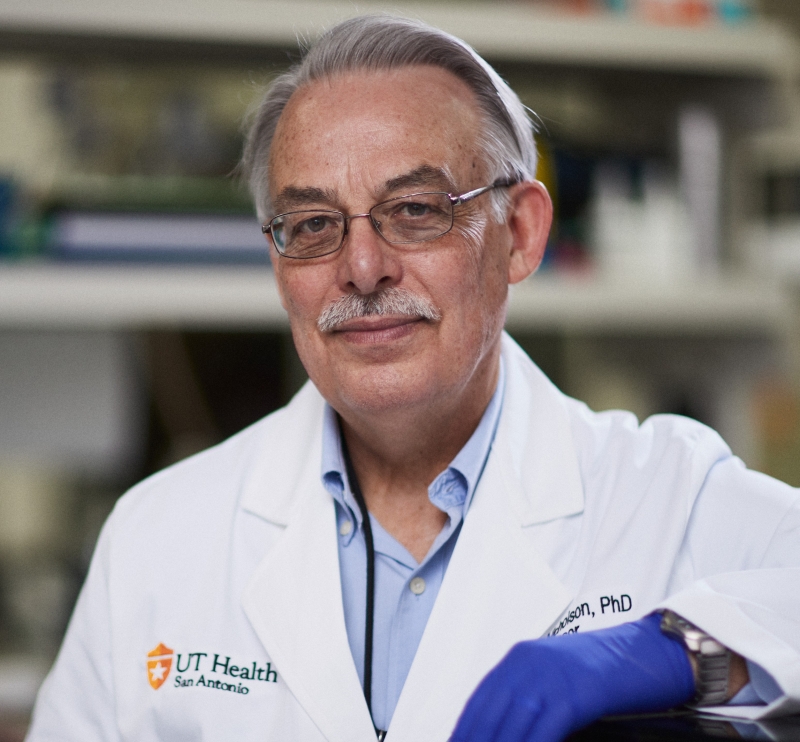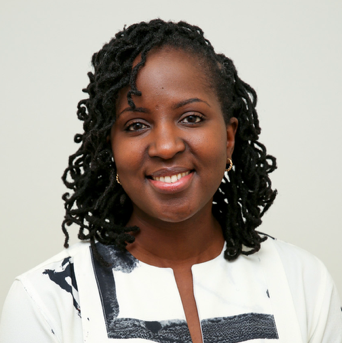Diverse Voices: Endometriosis
Date and Time
– March 28, 2024, 4:00 PM EDTVirtual Only
The March 2024 session of Diverse Voices: Intersectionality and the Health of Women is titled “Endometriosis.” The session will feature presentations by Drs. Bruce J. Nicholson and Jessica Opoku-Anane. Dr. Nicholson will present a talk titled Cell Mechanisms of Endometriosis Lesion Formation Provide Clues to a Non-Surgical Diagnostic. Dr. Opoku-Anane is a co-investigator on a Fiscal Year 2023 U3 project titled Leveraging Electronic Medical Records and Machine Learning Approaches to Study Endometriosis in Diverse Populations. Her presentation, The Color of Pain: Towards Equitable Endometriosis Diagnosis and Management, will highlight her work as part of that effort and her work founding University of California San Francisco’s Endometriosis Center for Discovery, Innovation, Training and Community Engagement (“ENACT”).

Bruce J. Nicholson, Ph.D.
Professor of Biochemistry & Structural Biology, University of Texas Health Science Center at San Antonio
Dr. Nicholson served as the Chair of the Department of Biochemistry and Structural Biology at UT Health San Antonio from 2004 to 2019, co-founding the Center for Innovative Drug Discovery in 2012. A native of Australia, Dr. Nicholson obtained his Ph.D. and post-doctoral training at the California Institute of Technology before taking his first faculty position at the University at Buffalo, SUNY. There he served as the Director of the Center for Advanced Molecular Biology and Immunology for 8 years and founded the first interdisciplinary graduate program in the Biomedical Sciences, before moving to San Antonio in 2004. Dr. Nicholson was a Pew Scholar in the Biomedical Sciences from 1988 to 1992, was awarded the Max Planck Prize in 1993 and served as the President of the Association for Medical and Graduate Departments of Biochemistry from 2016-17. His research career has focused on the structure, gating and permeability of intercellular channels called gap junctions, and their roles in diseases such as cancer and deafness. More recently he has turned his interest to the role of gap junctions in endometriosis lesion formation, and changes in their expression in the endometrium that may explain infertility. The utility of these changes as a non-surgical, early diagnostic is being pursued by Hera Biotech, a company he co-founded and serves as CSO.

Jessica Opoku-Anane, M.D.
Associate Professor, Department of Obstetrics and Gynecology, Columbia University
Dr. Opoku-Anane is a minimally invasive gynecologic surgeon and associate professor at Columbia University Medical Center In New York. She is the Director of the Comprehensive Endometriosis and Chronic Pelvic Pain Program and a provider in the Center for Research and Advanced Fibroid Treatment. She is also a Co-Director of the Office of Diversity, Equity, and Inclusion in the Department of Obstetrics and Gynecology. Prior to joining Columbia University in January 2022, Dr. Opoku-Anane was at the University of California San Francisco (UCSF) where she served as the Chief of Minimally Invasive Gynecology and Urogynecology and founder and Director of the UCSF Multidisciplinary Endometriosis Center. In addition to her clinical activities, she has been active in research and spent two years with NIH both locally and in sub-Saharan Africa. Her more recent research includes a randomized control trial to test the ability of antifibrinolytics to decrease blood loss during myomectomy, a study accessing cancer associated mutations in deep endometriosis, and several studies on health equity among historically marginalized patients with endometriosis. Additionally, she directs the Community Outreach and Education Core for the UCSF-Stanford P01 Endometriosis Center for Discovery, Innovation, Training and Community Engagement (“ENACT”). This Core trains and mentors new investigators in endometriosis research and empowers people with endometriosis to understand their symptoms and options for care and to inform the research community, from the patient’s perspective, about their needs and goals. Dr. Opoku-Anane also has a longstanding interest in global health and spends extended periods of time throughout Africa on clinical and research programs. She has published a systematic review article on increasing laparoscopic surgery in developing countries and assists with the development of laparoscopic programs throughout sub-Saharan Africa.
Sign language interpreting services are available upon request. Individuals who need interpreting services and/or other reasonable accommodations to participate in this event should contact Dr. Miya Whitaker at damiya.whitaker@nih.gov or via phone at 301-451-8206. Requests should be made at least five business days in advance.
